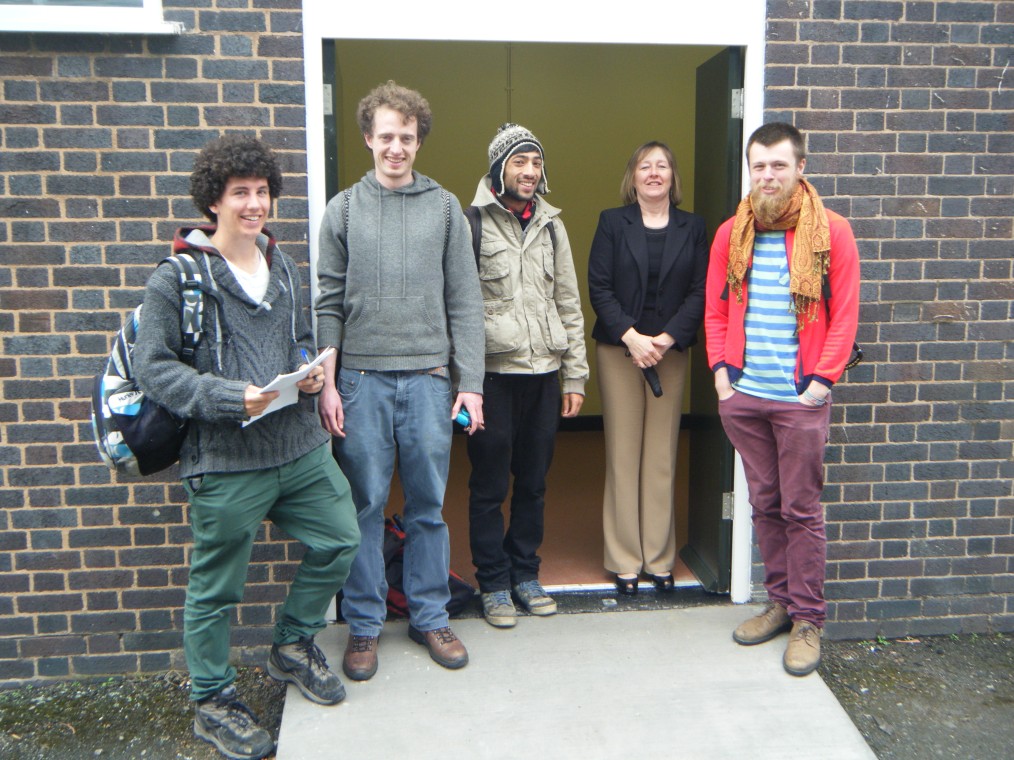This blog is cross posted from the Guardian
The rise in university tuition fees has dominated headlines and borne the brunt of student anger at the coalition government since 2010, but there is another drain on student finances that has so far escaped scrutiny.
The average cost of renting as a student in the UK is now £68.70 a week according to Accommodation for Students, which analysed the costs of 100,000 student properties in 77 cities. Soaring rents are not just the hallmark of the private rented sector; the average cost of student accommodation within university halls of residence has doubled in the last 10 years, rising from £59.77 to £117.67 a week.
The average rent for student accommodation in Birmingham is approximately £61, but to live close to the university’s facilities many students choose to pay a higher rent between £80 and £90. But the rise isn’t reflected in the quality of accommodation.
“Some of the houses are dumps,” says Sean Farmelo, a 21-year-old philosophy student at Birmingham University. “Weekly rent prices are now going up by about £5 each year and that is because most of the houses are lived in by students. Students have been taken for cash cows and no one has done anything about it.”
Farmelo and his friends are behind what will soon become the UK’s first student housing co-operative. They have secured £550,000 in finance that will go towards purchasing two five-bedroom houses in Selly Oak which will remain permanently available to student members of the co-operative.
Farmelo had been involved in co-operative schemes before and had received an £8,000 loan from the National Lottery to set up a bicycle co-op in Birmingham, as he lives in a cheaper part of town and cycles in to lectures to avoid the higher rent charged around the university.
Co-operative living promised a way to make a student house a real home, protect residents from rogue landlords and lettings agents as well as making a helpful saving on rent. But when the idea began to take shape, the amount of money they realised it could save took the group by surprise.
With the help of a computer program provided by Birmingham Co-operative Housing Services (BCHS) – the organisation that has provided the £550,000 loan needed to purchase the properties – they calculated how much rent they would need to pay each week. “We started putting in figures like £60, which would have been cheap anyway, and there was loads of surplus,” says Farmelo. “Then we put in £50 and there was still a lot of surplus. Even at £40 there was still quite a lot. We went down to £38, but we thought that was ridiculously cheap.”
The figure has not been finalised yet, but Farmelo says they are looking at around £40 a week, which includes management fees, a maintenence allowance and accounts for a full refurbishment every 15 years. And the savings the co-op will bring could not come at a better time.
“Tuition fees have just gone up and maintenance loans aren’t getting any bigger,” Farmelo says. “I pay more on my rent this year than I get in maintanance loans. It’s really squeezing a lot of people out of education.”
The speed at which the idea became a reality also surprised the group. “I thought they would say this is a good idea, but we’re not able to give you £550,000 that quickly,” admits Farmelo. “But apparently they are.”
BCHS is not normally in the habit of handing out half a million pounds to undergraduates. “The important thing is that the group of students we’re working with clearly have experience working with co-operative enterprises,” says director Carl Taylor.
The group had hoped to get funding from a co-operative lender to purchase the homes, but without a record of property management they initially found funding difficult to secure. However BCHS was convinced by the model, and when the co-op system has been tested the group intends to reapply for funding and purchase the properties outright.
With more than 18,000 students paying between £60 and £160 a week to live close to the university, there is plenty of potential for growth. “At the moment our issue is meeting the excessive demand, which we can’t ever hope to do,” says Taylor.
With the battle over tuition fees lost, extortionate housing prices could be the next target for those tired of seeing the cost of a higher education in England increase every year.
Farmelo says that it shouldn’t be left to individuals to look for the solutions. “This is what student unions should be doing. As a student, you only spend your money on tuition and housing, with a little bit left over for food and a pint. Unions only really focus on things such as safety and community spirit, which obviously they should be doing, but it’s like hiding under a shell and ignoring the fact that students are getting ripped off every year.”
Two houses with a combined 10 bedrooms may be a humble beginning to the student housing co-operative movement but Farmelo believes his model – and the UK student housing network he intends to establish – could eventually help replicate the more established large-scale student housing co-operatives found in American universities.
“I did this in my spare time, and what I want to do is make it available to a lot more students,” he says. “A couple of years down the line you can really start tapping real finance, such as pension funds and larger loans, to buy halls that will house hundreds of students. It’s a real possibility but it needs a catalyst to show people that there is an alternative.”














